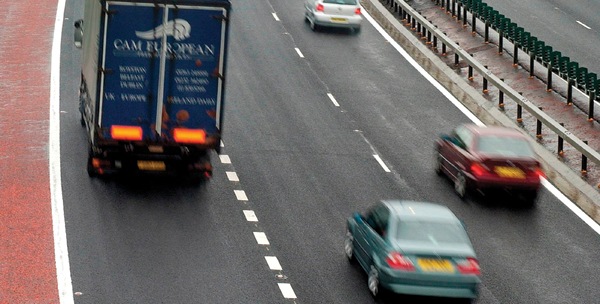Transport directions
Fuel duty and infrastructure top parties’ priorities. Greener travel is lower down the list.
Transport policy can be neatly directed into two routes. Roads, railways and ports are devolved to Northern Ireland, while air and sea travel go to Westminster, which also sets the prices at the pumps.
DUP
The DUP praises community transport for how it helps older people in isolated rural areas and calls for more investment. Programmes to keep up the skills and confidence of older drivers are promoted. Its manifesto also calls for the Treasury to be flexible on fuel duty when costs are particularly high.
Sinn Féin
“Cleaner vehicles and more sustainable transport choices” are needed, says Sinn Féin. It pledges a new active travel strategy to promote alternatives to car use and introduce 20 new trains into the rail network. Rapid transit is also on the way, but the party’s commitments focus on opening or building new roads, especially west of the Bann and on cross- border routes. Residents’ parking schemes are proposed for Belfast and Derry and the party will seek to keep the City of Derry Airport open.
SDLP
An all-island transport strategy, as suggested by the SDLP, would plan ahead for growth in ports and airports. Better public transport is a priority. Investing in road maintenance could help create jobs and the party supports devolution of aviation powers to the Assembly.
UCUNF
Conservatives and Unionists pledge to “examine the case” for devolving some aviation powers so it can draw up a regional strategy for that sector.
Opposed to Heathrow’s third runway, the Tories would link the airport into high speed rail, again eventually reaching Scotland. Second runways at Stansted and Gatwick would also be blocked. A ‘fair fuel stabiliser’ to cut fuel duty when oil prices rise (and vice versa) is also suggested.
Alliance
Investment would be rebalanced in favour of public transport, under Alliance plans. Lower carbon technologies are also supported and the party encourages a wider debate on congestion charges and other forms of road pricing; a proper public transport system is needed before
any charges are introduced. A revised aviation strategy for the UK is suggested, as the current one is almost 10 years old.
Others
Labour pledges not to put VAT on bus or rail fares. Its main plan is a high-speed rail line, ultimately linking London and Scotland. A third Heathrow runway is again supported and the party backs the proposed rail link from Glasgow airport to the city centre.
The Lib Dems want to restrict aviation growth but recognise that “in some more remote parts of the country, flights are a vital lifeline”. The introduction of road pricing, in Great Britain, would fund the end of vehicle excise duty and the party wants all new cars to have zero emissions by 2040.
Green policy is to shift spending towards public transport, non-private car use, pedestrianisation and cycleways. Trams are suggested and fuel duty would fund public transport. In a clear appeal to the motorist, the TUV calls for a “more reasonable price for fuel”, especially to benefit rural areas.






